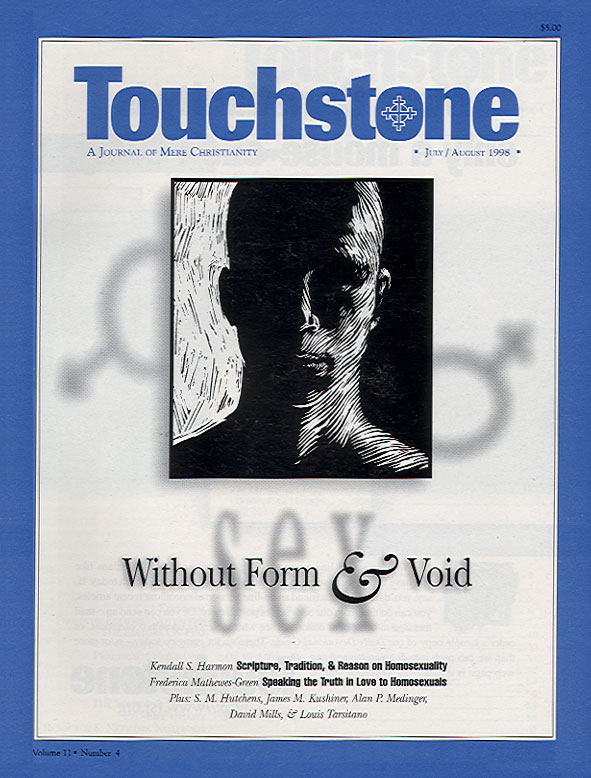Rationality & Revelation: C. S. Lewis & Lambeth
It is difficult to know what C. S. Lewis—born 100 years ago this coming November—would have thought of this summer’s Lambeth Conference, at which the world’s Anglican bishops will meet to discuss matters of common concern. He was so eager to uphold “mere Christianity” and to bring together believing Christians to face the threats and challenges of the rapidly secularizing societies of the West that he wrote very little about Anglican affairs.
And yet he did a few times jump into a controversy. He jumped in most famously in his essay “Priestesses in the Church?”, published in an English magazine before the Lambeth Conference of 1948. (It is republished in God in the Dock.) Someone had proposed in the same magazine that the Conference endorse the ordination of women, and though Lewis admitted that the proposal had little chance of succeeding, he went out of his way to oppose it, which suggests how deeply he felt the error.
Rational Innovations
In the essay, he admitted that “all the rationality is on the side of the innovators.” Women are as capable as men “of piety, zeal, learning and whatever else seems necessary for the pastoral office.”
The reason for opposing the innovation is that a woman cannot represent God to us as a priest must do. (There are also compelling biblical arguments against placing women in headship, which Lewis didn’t mention.)
Think, he continued, of praying to “Our Mother” as well as “Our Father,” or Jesus being born as a girl, or speaking of the Father, Daughter, and Holy Spirit. If we did any of these, “we should be embarked on a different religion,” so that “a child who has been taught to pray to a Mother in Heaven would have a religious life radically different from that of a Christian child.”
We know now that Lewis was right about this. In the official feminist liturgies of the Episcopal Church, the transcendence of God and the depths of our own sin have disappeared. The result is a very cozy and reassuring religion, but one without the realism about the human condition that is the condition for repentance, healing, and renewal, and without the sort of God who can save us.
The Problem
Though “God Himself has taught us how to speak of Him,” the “innovators are really implying that sex is something superficial, irrelevant to the spiritual life.” And this is a grave mistake, for “We have no authority to take the living and semitive figures which God has painted on the canvas of our nature and shift them about as if they were mere geometrical figures.”
This argument “is what common sense will call ‘mystical’,” he continued. “Exactly. The Church claims to be the bearer of a revelation.” And indeed “there ought to be something in it [our religion] opaque to our reason though not contrary to it. . . . [T]hat is the real issue. The Church of England can remain a church only if she retains this opaque element.”
For, though Lewis did not explain this, the restriction of ordination to men is truly rational, because it expresses the Reason working in creation. But this Reason we, created and fallen as we are, cannot completely see. We need God to show us. We need revelation to be reasonable.
David Mills has been editor of Touchstone and executive editor of First Things. He edits the opinion page of the Pittsburgh Post-Gazette.
subscription options
Order
Print/Online Subscription

Get six issues (one year) of Touchstone PLUS full online access including pdf downloads for only $39.95. That's only $3.34 per month!
Order
Online Only
Subscription

Get a one-year full-access subscription to the Touchstone online archives for only $19.95. That's only $1.66 per month!
bulk subscriptions
Order Touchstone subscriptions in bulk and save $10 per sub! Each subscription includes 6 issues of Touchstone plus full online access to touchstonemag.com—including archives, videos, and pdf downloads of recent issues for only $29.95 each! Great for churches or study groups.
Transactions will be processed on a secure server.
more on C. S. Lewis from the online archives
more from the online archives
calling all readers
Please Donate
"There are magazines worth reading but few worth saving . . . Touchstone is just such a magazine."
—Alice von Hildebrand
"Here we do not concede one square millimeter of territory to falsehood, folly, contemporary sentimentality, or fashion. We speak the truth, and let God be our judge. . . . Touchstone is the one committedly Christian conservative journal."
—Anthony Esolen, Touchstone senior editor












